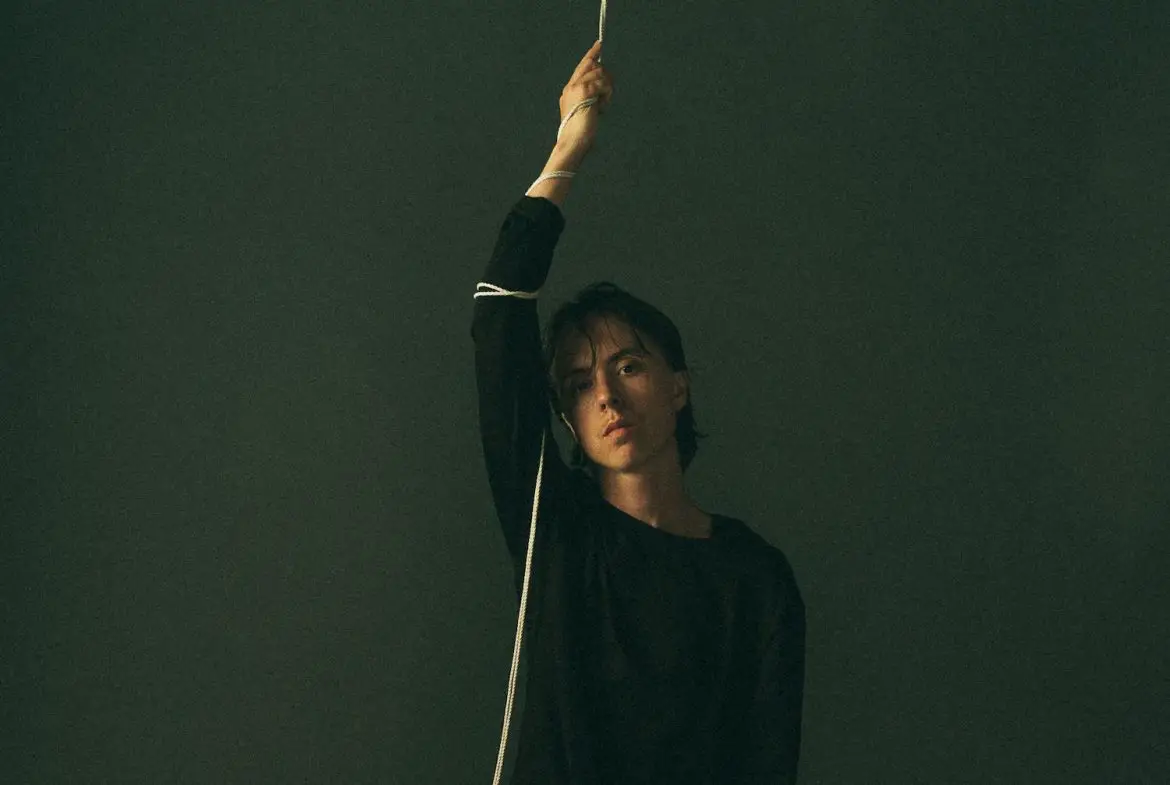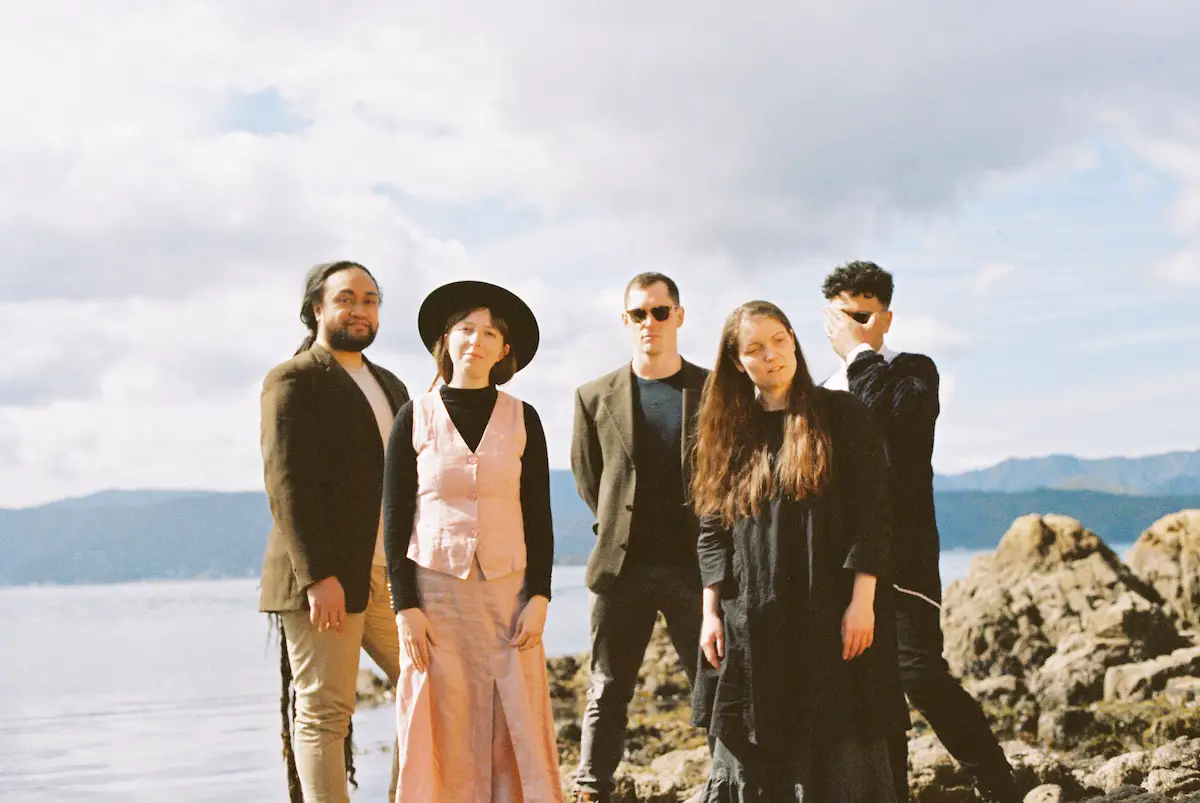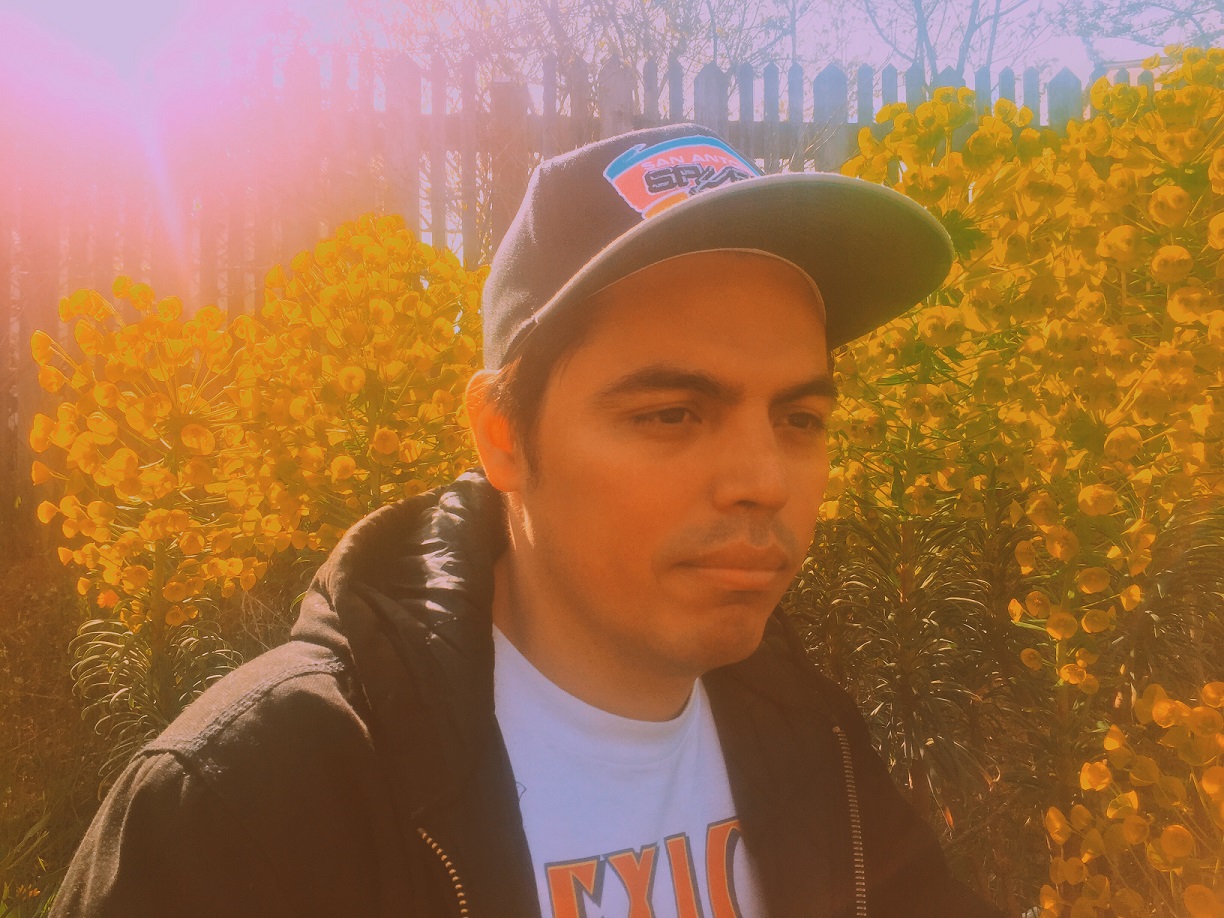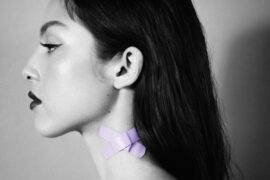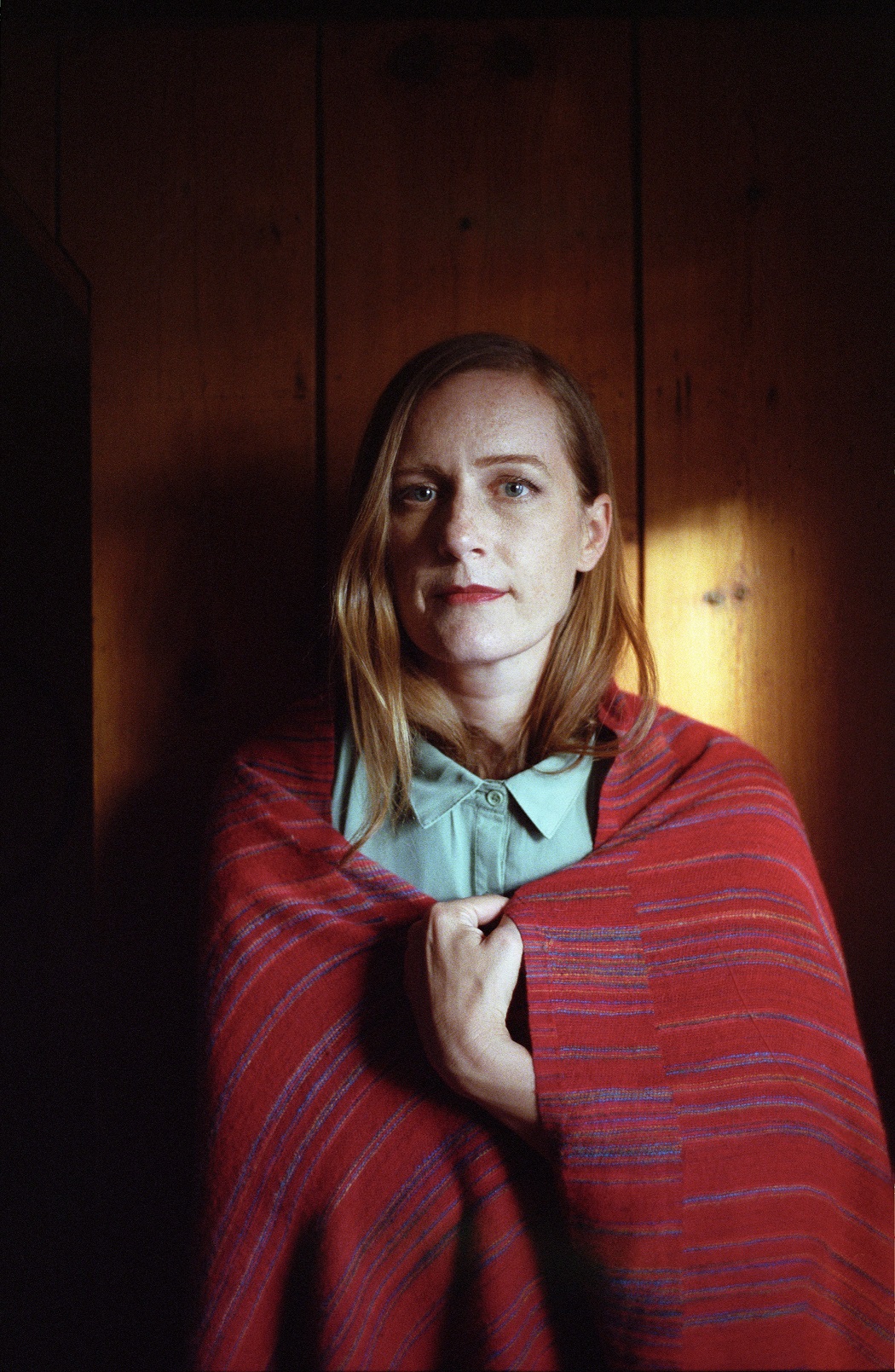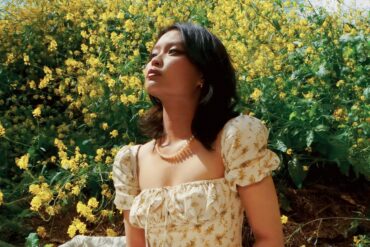Hand Habits’ Meg Duffy talks about their third album ‘Fun House’ and how the best way to get over something is to go through it.
Stream: ‘Fun House’ – Hand Habits
To know the fear of experiencing those feelings is actually worse than the fear you’re afraid of; you are able to experience and go through these feelings – it’s possible.
There is an old adage that goes, “It takes a village to raise a child”. Colloquially, the “child” aspect will take shape for whatever the saying needs. A chef might say “it takes a village” to make sure a souffle does not fall. Or a director, thinking of their cast and crew, might have the film itself be the “child”. After hearing the processes that went into indie singer/songwriter Hand Habits’ third album, Fun House, one could surely say it takes a village to make an album.

Meg Duffy, under their stage name Hand Habits, said the goal of this album was to “cloak some of the perils of mortality (lyrically) in a musical landscape that didn’t require the listener for a large amount of patience.” Released in October 2021 via Saddle Creek, Fun House is emblematic of mixed emotions: On the song “Gold/Rust,” Duffy articulates the idea of making something – a rusty playground glittered in gold, simply because of the company associated with the location. Yet, in the idyllic fantasy, warped by your own perspective, they remind you that the memory of a person you love, nor a location associated with them, can fill the void they leave. And that’s just one of twelve tracks.
Duffy, though, keeps what’s daunting, difficult, yet worth it. Every moment of Fun House is a tempest that promises wonders on the other side, yet by the time the storm has been weathered, the wonders become lackluster in the wake of self-healing.
Meg Duffy first picked up a guitar at the age of seventeen. Since then they have been a session player on albums from Weyes Blood, War on Drugs, and Mega Bog. In 2017, under the moniker Hand Habits, they released their first solo album Wildly Idle to high praise. Two years later, they released the deeply vulnerable sophomore album, placeholder.
Late last year they released their third, and instantly heralded, album Fun House. Atwood Magazine had a chance to sit down with Duffy to discuss their process of vulnerability, musical growth, and internalized indie folk-aphobia.

A CONVERSATION WITH HAND HABITS
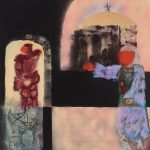
Atwood Magazine: You’ve previously described placeholder as impulsive. If you had to use one word to describe writing Fun House what would it be?
Hand Habits: Curious. If I could use two words, curious and intentional. I still feel like a baby songwriter in a lot of ways, and I’m learning more and more that there are so many ways to make a song. For us [songwriters], there’s so many of us, and we all have the same job but, we all do it in a multitude of different ways and not many fields are like that. Actually… maybe there are a lot of fields like that, nevermind. *laughs*
Anyway, placeholder felt very, “first thought best thought”, I wasn’t brave enough to be curious about what I was actually saying. The metric for my songs was, “Is this song done or not done?” and when it was done, that’s it! I would not open that box further. There are still pieces of placeholder that I love, but now that I interpret it with fresh eyes, I can see how unwilling to delve into what energy I was putting into the songs and what I was putting out. On Fun House I had so much more time to look at myself and think deeper than, “you hurt my feelings.” Right off the bat I thought, “Alright, enough! No more revenge, guilt, shame, or self victimization,” I want this to be about me and my perspective without any judgment. I hesitate to use the word accountability because, personally, it can feel punitive, but for this album I looked at my lyrics and I wasn’t afraid to see what was coming out. I questioned any lyrics that were more pointed at someone, because, on placeholder I never took into account that I’m gonna live with these songs and lyrics forever.
All those feelings are exactly how I felt listening to this album, it’s so indicative of “mixed emotions.” It has a through-line of the notion, you don’t need to feel one way about something and honestly you shouldn’t want to feel one way about anything. I remember reading a piece a long time ago about how refreshing it was to hear Florence and the Machine get angry. I wanted to ask, “Concrete & Feathers” to me, felt like the angriest you get.
Hand Habits: Yeah, that’s so interesting because “Concrete & Feathers” is the oldest song on the record. It was the first song I wrote right after placeholder. It’s funny too because I am angry, but at myself. That song was about someone telling me to “stop being so fucking messy all the time”. *laughs* I think “More than Love” was the angriest one I had, but again that anger is directed inward towards the disappointment in my own lack of capacity. Actually, anger has been coming up as a theme in my life a lot. I often think I’m not angry about something and then all of a sudden I realize, “I’m fucking pissed!”. I usually just glaze over those feelings. I don’t want to have anger or sadness – instead, I immediately go into empathy and it glazes over my own experience, really as a form of protection. I’m curious though to tap into that anger within the safety container of a song. I’d like to write a song about that false linearity between anger and compassion; it can be all-encompassing. This interview is giving me some ideas.
I’m glad to give you ideas! Going back to “More Than Love” for a second, I felt that the first three tracks – “More than Love”, “Aquamarine” and “Just to Hear You” – sound encapsulated and different, production wise, from the rest of the album?
Hand Habits: I’m curious to know which track listing you have because there’s two.
Oh! I have the digital tracklist.
Hand Habits: Ok, yeah, that’s a little different from the Vinyl tracklist, the first four are still the same though. I think production wise those songs all seemed to fit together, they were pop inspired rather than folk rock, or ugh everyone continues to say “indie folk” for whatever reason.
Yeah, they’re addicted to saying that.
Hand Habits: I don’t really know what my beef is with it (laughs), I think it’s like when someone calls me Trans*, I’m like, “Don’t say that… but wait, I am.” Maybe I just have a little indie folk internalized- a-phobia. …Anyway, to me “More than Love” and “Just to Hear You” are about the same relationship and although “Aquamarine” and “No Difference” are not, they all are about me and sounded like they fit together. The difference in sound was intentional, Sasami [Ashworth] and I said that neither of us wanted to make an album that sounded like my last one.
We’ve been friends forever and in the beginning of the process she said, “You have such a dynamic personality, I wanna explore that musically with you” so we did. Placeholder, to us, stayed in the same zone and mood the whole time, there was no real drastic tonal shift. Fun House, not to be too on the nose, however, felt like every song was it’s own room, and every room had its own unique interior.
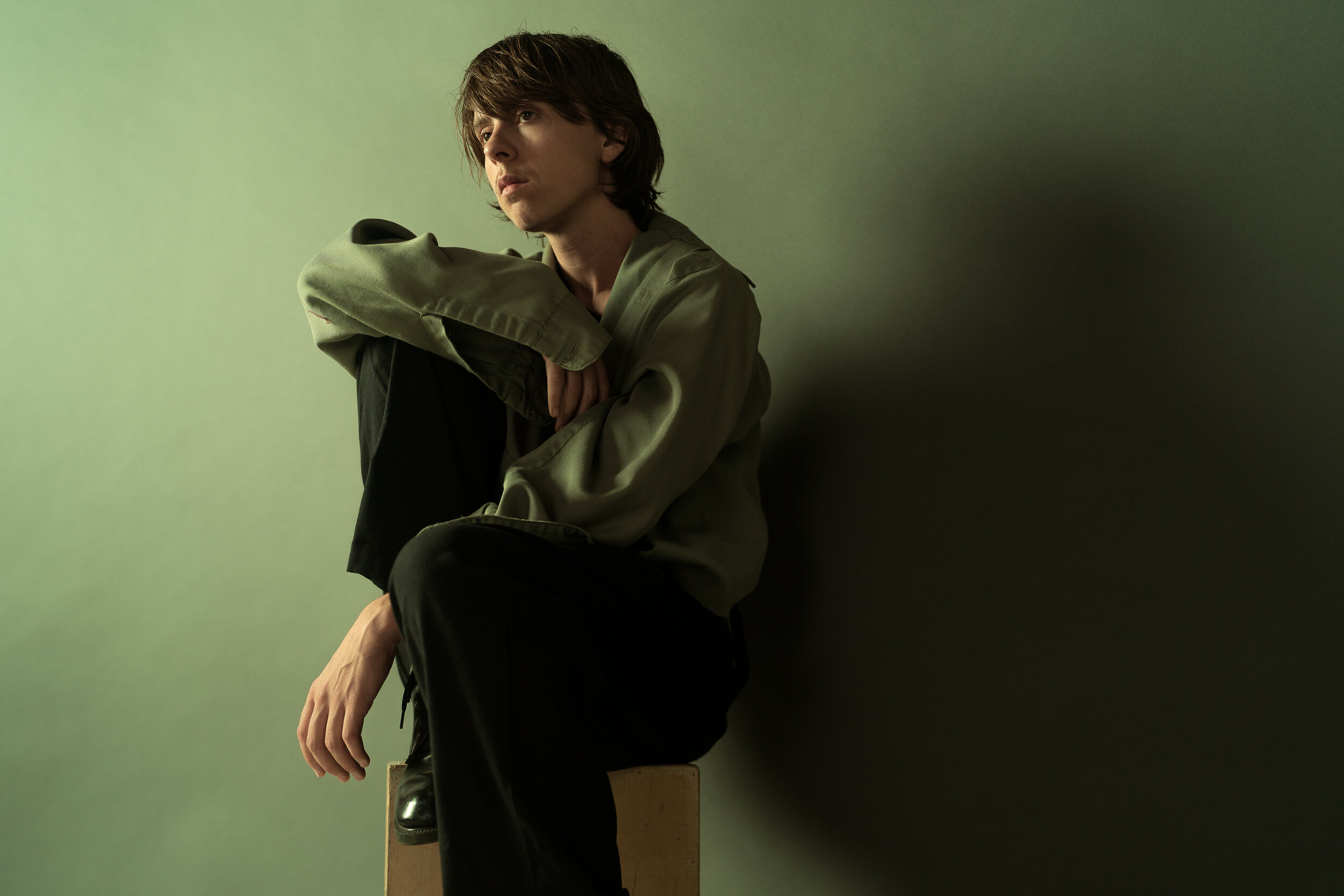
I have to say something brave, when I heard SASAMI was producing this album, my first thought was, “That’s such an interesting pairing, and so different from the music they usually make.” Then when I listened to the album, it made so much sense.
Hand Habits: No, no, I agree with you. It was a lot on the line, because we were living in the same house, and have been close forever. We did “4th of July” together though and In the first week of the pandemic I was so depressed, I had just been broken up with and in the uncertainty of the pandemic I was like, I need to be making music or doing something. I remember I could hear her producing Kyle Thomas’ record through the floor, and it was extremely inspiring. Sasami is so tapped in and she has this amazing ability to expand on whoever she’s producing, without getting lost. Fun House feels like a more confident version of me. I think it’s because she’s taught children and she has this magical ability to make someone feel comfortable and like they can have fun. Sasami gives the artist permission to explore their curiosity and nourishes it into fruition in an album we’re both proud of.
It’s an amazing album, and you both should feel proud!
Hand Habits: Thank you so much. But yeah we did “4th of July” together as a trial, I don’t know if she knew it was a trial, but it was. *laughs* For Fun House, I was considering going up to Toronto to make it or Chicago. Then you know, COVID circumstances, no one was going anywhere and we had a recording studio at the house. Plus we had so much fun making “4th of July” together, and I really loved how that song worked out. I also think because of the capacity of our friendship, I’m not afraid to say “No” to her and she’s not afraid to push me past my “no”; but also respecting my “no” when needed. Certain dynamics are just more inspiring, I’ve found.
Yeah, it’s towing a scary line that could ruin your friendship forever, but it’s so great and fateful that it worked in your favor. Not to mention fruitful because everyone, Japanese Breakfast included, loved “4th of July.”
Hand Habits: Aw Michelle [Zauner]. Whenever I start to get overwhelmed with the workload I have, I think of Michelle, “Michelle can handle this!”. I don’t know how she would feel about that though. We used to live together very briefly in Philly, I’m even in a song on Soft Sounds From Another Planet, that line,”This house is full of women//playing guitar, cooking breakfast.” (Note: This was before Duffy came out as non-binary). I’m so inspired by her though and she is just the most supportive person. Michelle just brought Sasami on tour, and one time she and I even sold merch on a different one of Sasami’s tours. She is someone who has really pushed through the moniker of “Indie Rock” but still shows up for her fucking fans and her community. Making this record felt a lot like that, it had Michelle’s energy or that energy that continues to champion you throughout your and their careers – it’s inspiring. I want to keep that energy, especially for queer people, it’s necessary and awesome.
Speaking of collaborations, how was it working with Perfume Genius?
Hand Habits: It was great. I mean I’ve been playing in that band for almost two years. I spent more time with Mike and Alan and the rest of the band this year more than anyone else. When it was safe to, in the pandemic, we were rehearsing for a livestream a month straight before I went into recording Fun House. I got to know them that way since we spend so much time together: tours, rehearsals, I even went on vacation with them a couple weeks ago. It’s just so inspiring to work with Mike. I have so much respect for him, he really transcends so much of the bullshit. The thing that I always remember when I think about Mike is when he told me, “You can do whatever you want. You can literally do whatever you want.” I forget that so much, and I feel really grateful to have him as a friend, as corny as that word is. He embodies whatever the mood of the song is, and being able to be in the band and watch him, really gave me a lot of permission for a lot of things I didn’t previously have a model for. For “Just to Hear You” Sasami wrote the harmony and said I had to ask Mike to sing it with me, and I remember being so scared because I don’t like asking people for things. *laughs* He said “Of course” and it was so funny to have him in Kyle [Thomas’] closet recording in the dark, filled with junk, and just hearing him sing that part was an exciting moment on the record for me.
With collaboration comes inspiration and there seems to be a very clear progression of sound from Wildly Idle to Fun House, was that progression calculated or more natural?
Hand Habits: Yeah with Wildly Idle, I recorded it mostly on my own, and really felt like I had something to prove. Although there was something liberating about making that album on my own, I got to develop my own taste without influence from people in a band, and that was really what I needed at the time.With placeholder I demoed most of the tracks out beforehand, so I knew what about 70% of the album would sound like, and Brad Cooke and Andrew Sarlo really got me there. For Dirt and Fun House it was a mixture of people’s opinions. I really feel so inspired by collaboration and specifically how other people’s experiences and perspectives make a specific mixture. The conversation you and I are having right now is a collaboration, it’s not just you asking me definitive questions, it’s a conversation. With music and production, I don’t know what’s best or how to get there; there are certain places musically I haven’t even discovered yet. Sasami as a producer has one outlook because she has a Classical background whereas Luke Temple has a voice that provides such a different kind of sound. Really two or three people in a room can make a song sound completely different. Something I’ve always wanted to do is re-record my first record in a more modern or Hifi way. If I’m ever reincarnated I would love to do that, only have one album but re-record it a different way each time.
“Control” is such a powerful last track. What were you thinking when you made that song?
Hand Habits: Yeah, I uh, I like going out on something that’s not a “banger”. …Ugh I don’t know how to talk about “Control”. I love it so much. For me, “Control” is about a compulsion or a pattern that’s been seen by others, and accepting the task at hand to address it. That song feels like a portal into a specific emotional sect that was a turning point for me… it makes me wanna cry. Writing “Control” came in the second batch of songs for the album, along with “Graves” and “Clean Air”. All three of those songs were written and played on one guitar with one specific tuning. There was something molecularly resonant about the tuning of that guitar and with me that felt like I could disappear into the emotion, and it’s so hard for me to do that sometimes.
What is something you want to be taken away on this album? What do you want listeners to be thinking?
Hand Habits: The one takeaway I want for people is to really feel like they can see the dark parts of themselves and face them: To know the fear of experiencing those feelings is actually worse than the fear you’re afraid of; you are able to experience and go through these feelings – it’s possible.
•• ••
Meg Duffy’s music has always been emotionally eviscerating, yet completely healing. They navigate such complex emotions with sincerity, in succinct, beautiful lyrics. Yet as they widen the scope, it reminds us all how much goes into the art we consume. Fun House was a product of time, precision and perspective of SASAMI, Kyle Thomas, Mike Hadreas, and so many others. The album is one, in turn, that should be sat with and listened to repeatedly, to let all the emotions and effort that went into it sink in. In their third labor of love, Fun House, Duffy reminds people, especially queer people, all we are capable of artistically and emotionally.
The one takeaway I want for people is to really feel like they can see the dark parts of themselves and face them.
— —
:: stream/purchase Hand Habits here ::
— — — —

Connect to Hand Habits on
Facebook, Twitter, Instagram
Discover new music on Atwood Magazine
? © Jacob Boll
:: Stream Hand Habits ::

